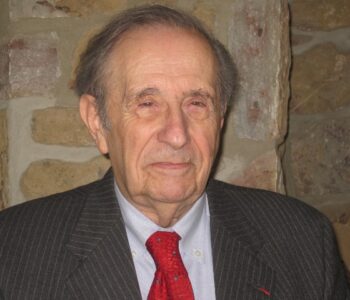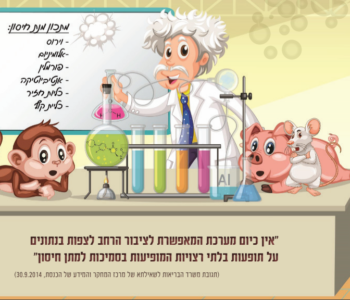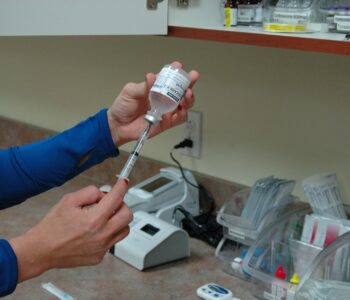
Specialist vs. general practitioner
No one who has a specific disease will rely on their general practitioner. Everyone will seek a specialist. If someone ch”v has cancer they would not hesitate to fly out to another state or another country to find a doctor who specializes and has success with a specific treatment for their type of cancer.
What about vaccines?
Doctors do not receive training in vaccinology or immunology unless they specialize in these fields. They receive education about the vaccine schedule and some basic information about vaccination for a few days at most.
Learning a specialty typically requires a few thousand hours of additional training, research, and reading to become an expert in that field. Most doctors who have not spent significant amounts of time investigating the science and statistics behind the vaccine programs rely on the CDC guidelines.
Here’s what doctors say about the training they received in medical school:1
According to Ramon Ramos, MD, “The only thing we learned in [medical] school was that there was a program and that we should follow that vaccine program. As to the vaccine itself and the contents of the vaccines, no we didn’t study that. We assumed that what the pharmaceuticals, that what they did and the CDC accepted, that that’s the way it is.”4 5
Paul Thomas, MD recollected, “We got a lot of microbiology, we learned about diseases, and we learned that vaccines were the solution to those diseases that, what they say, are ‘vaccine preventable.’ But, actually, what was in the vaccines, I don’t remember really learning anything. … I was never taught, when I was in medical school 30 years ago, what was in a vaccine. We were only taught they’re wonderful.”4 6
This lack of knowledge about vaccine ingredients and how vaccines can affect immune and brain function should be of particular concern to anyone getting a vaccine from a doctor. “You’d be amazed at the number of physicians, you ask them what’s in a vaccine?” said neurosurgeon Russell Blaylock, MD. ” They’ll say, well, there’s the bacteria, the virus you want to vaccinate against, and then there’s a little immune stimulant in there to help stimulate the immunity so they react against those viral antigens.”7 8
Dr. Blaylock points out:
They don’t know about these other chemicals in there like formaldehyde, special proteins, special lipids that are known to be brain toxic, that are known to induce autoimmunity in the brain. They’re not aware of that. They don’t know that MSG is in a lot of vaccines―monosodium glutamate, a brain excitotoxin. They’re not aware of what’s in the vaccine they’re giving.7 8
“We learned what [vaccines] were, what the diseases were,” said Joseph Mercola, DO. “We probably learned more about the diseases and, of course, everyone accepted the dogma that vaccines work. There was just no critical analysis about the pros and cons. It was never discussed, let alone the side effects.”4
“I don’t remember them teaching me anything about adverse effects… at all,” said Patricia Ryan, MD. “They just wanted you to memorize the schedule and make sure you knew when to give [the vaccines].”4 9
But you don’t take these doctors’ words for it. Listen to what Prof. Heidi Larson had to say about medical school education when she spoke at the WHO Global Vaccine Safety Summit in early October 2019:
Who pays for your doctor’s education?
. . . Who controls what doctors are taught? The pharmaceutical industry. How? Big Pharma provides hefty contributions to medical schools and teaching hospitals, advertises in medical journals, and funds the majority of research.
Marcia Angell [former editor of the New England Journal of Medicine, physician, and author of “The Truth About the Drug Companies” 2 sums it up well:
“If drug companies and medical educators were really providing education, doctors and academic institutions would pay them for their services. When you take piano lessons, you pay the teacher, not the other way around. But in this case, industry pays the academic institutions and faculty, and even the doctors who take the courses. The companies are simply buying access to medical school faculty and to doctors in training and practice.”3
Can your doctor rely on the CDC?
The pharma industry not only compromises your doctor’s education, but it also compromises the CDC. An article in Pharma.com “Can CDC in the US Takings Millions from Pharma Industry Be Unbiased?” referencing an article in the BMJ4 relates that
. . . in 1983 the CDC was authorized to accept “gifts” from industry and accept ‘gifts’ from industry and other private parties and in 1992 legislation was passed by US Congress to encourage relationships between the CDC and industry through a non-profit, the CDC Foundation.
. . .
BMJ quoted the chief executive of a community health centre in the US which sees half a million patients annually as saying that though CD[C] might claim that the money does not affect their recommendation, “multiple studies clearly —and repeatedly—show that who sponsors a study, or issues a guideline, makes a difference”.
Why “most doctors” seem to be in agreement about vaccines
The above explains why when people say that rov (most of the) doctors agree on vaccines and vaccine mandates, it is actually only one voice, the CDC’s (on behalf of pharma), that is being repeated by rov doctors.
The only question that is valid in this discussion is: “What do specialists have to say?” As far as Rodef Shalom 613 can discern, it seems that the majority of specialists (not including doctors with vested interests), who receive funding independent of government agencies and pharmaceutical companies, are for vaccine choice.
If I can choose my own doctor or specialist for other medical issues, why can’t I choose the doctor I want to rely on when it comes to vaccines?
Related:
The Accepted Practice vs The Majority Opinion
Rabbi Szendro: Does Jewish Law Obligate Us to “Follow the Doctors”?
Featured image by Max from Pixabay
Footnotes









